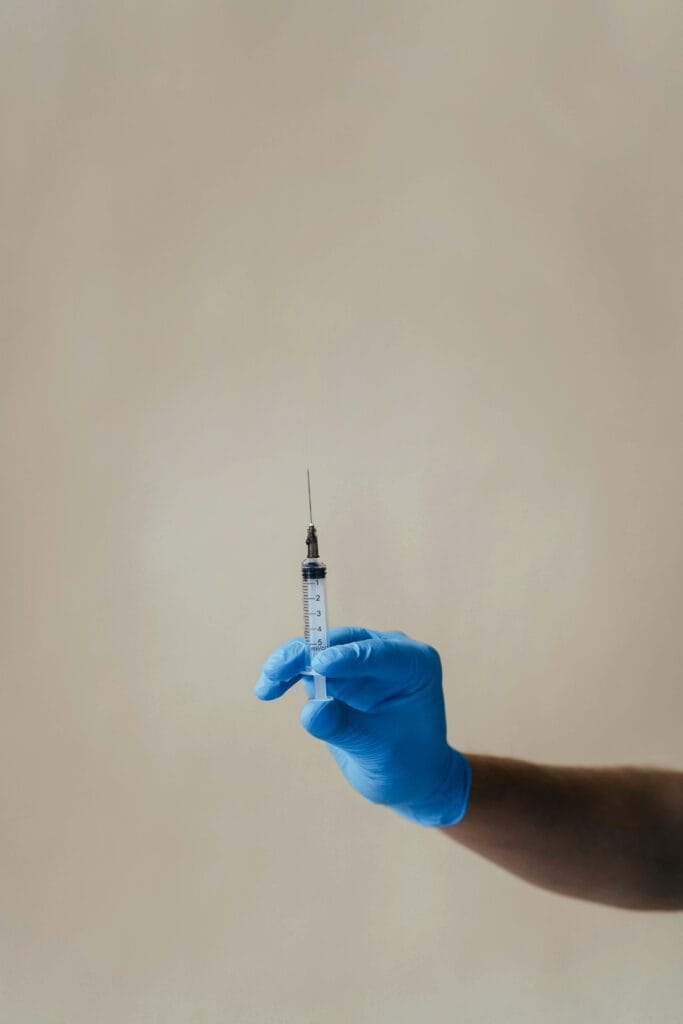Vaccines have long been heralded as one of the most effective tools in modern medicine, significantly reducing the prevalence of infectious diseases and saving millions of lives globally. However, as the science of immunization advances, nuanced questions about the optimal administration of vaccines for different populations have emerged. One such question is whether there is a need for tailored vaccine schedules for Black Americans or other specific demographic groups. This blog delves into the scientific evidence surrounding this topic, examines the historical context of medical racism, and evaluates the implications for public health policy.
The Role of Vaccines in Public Health
Vaccines work by introducing antigens—substances that stimulate an immune response—into the body. This prepares the immune system to recognize and combat specific pathogens. Standardized vaccine schedules have been developed based on rigorous clinical trials and are designed to protect individuals at various stages of life.
The Centers for Disease Control and Prevention (CDC) and the World Health Organization (WHO) continuously evaluate vaccine schedules to ensure they are safe and effective for the majority of the population. These schedules consider factors such as age, health status, and exposure risk. They are not generally differentiated by race or ethnicity, as the immune response to vaccines is largely consistent across human populations.
Are There Biological Differences in Vaccine Responses?
Scientific research on racial or ethnic differences in immune responses to vaccines is limited. A 2014 study published in Nature Reviews Immunology highlighted subtle variations in immune responses among populations due to genetic, environmental, and socioeconomic factors. However, these differences are generally not significant enough to warrant separate vaccine schedules.
For example, studies have shown that Black individuals may have slightly higher antibody responses to certain vaccines, such as the hepatitis B vaccine. However, these variations do not impact the overall safety or efficacy of the vaccine and do not justify changes to the standard schedule.

The Historical Context: Medical Racism and Distrust
The history of medical racism in the United States, including unethical experiments like the Tuskegee Syphilis Study, has understandably fostered deep mistrust in medical institutions among Black communities. This mistrust is further fueled by misinformation campaigns that exploit historical injustices to sow doubts about vaccine safety and efficacy. These campaigns often target Black communities with narratives that resonate due to past experiences of exploitation and neglect, making the challenge of rebuilding trust even more critical for public health efforts.
To rebuild trust, public health initiatives must actively acknowledge this history and work to restore confidence through transparent communication and community collaboration. Establishing partnerships with trusted community leaders, providing culturally sensitive care, and addressing systemic inequities in healthcare access are vital steps. Additionally, ensuring that vaccine education campaigns are inclusive and responsive to community concerns can help dismantle misinformation and empower individuals to make informed health decisions. By prioritizing equity and respect, public health efforts can create a foundation of trust that encourages broader vaccine acceptance.
Some proponents of different vaccine schedules for Black Americans cite historical instances of medical malpractice as justification for tailoring immunization strategies. However, conflating legitimate historical grievances with scientifically unsupported claims risks undermining public confidence in vaccines.
Addressing Health Disparities
Health disparities among Black Americans are well-documented, with systemic inequities contributing to higher rates of chronic conditions such as diabetes, hypertension, and asthma. These conditions can influence the risk of complications from vaccine-preventable diseases, making timely vaccination even more critical.
Rather than altering vaccine schedules based on race, public health efforts should focus on increasing access to vaccines, addressing socioeconomic barriers, and building trust through community engagement and culturally competent care.
The Consensus Among Experts
The overwhelming consensus among immunologists, epidemiologists, and public health officials is that current vaccine schedules are appropriate for all racial and ethnic groups. Tailoring schedules based on race is not supported by scientific evidence and could inadvertently perpetuate racial biases in healthcare.
Instead, research should continue to explore how genetic and environmental factors influence vaccine efficacy and safety across diverse populations. This knowledge can enhance vaccine development and deployment without resorting to race-based modifications.

How Pharmaceutical Companies Can Make Themselves and Their Products More Trustworthy
Pharmaceutical companies have historically contributed to the distrust in Black communities through unethical practices, such as the exploitation seen in the Tuskegee Syphilis Study and other instances of neglect or harm. To rebuild this trust, these companies must commit to transparency, accountability, and active community engagement.
Strategies to increase trust include:
- Ethical Practices: Ensuring that research and clinical trials prioritize informed consent and equitable representation of diverse populations.
- Transparency: Publicly sharing detailed information about vaccine development, safety, and efficacy, and being forthcoming about potential side effects.
- Community Investment: Actively engaging with Black communities by funding healthcare initiatives, supporting local health organizations, and addressing systemic barriers to care.
- Education Campaigns: Collaborating with trusted community leaders to create culturally relevant and accessible educational materials.
Legislation can support these efforts by mandating diverse participation in clinical trials, enforcing stringent ethical standards, and providing funding for outreach programs in underserved communities. By combining corporate responsibility with robust legal frameworks, pharmaceutical companies can begin to repair the fractured trust and contribute to better health outcomes for all.
Conclusion
The notion of different vaccine schedules for Black Americans is not supported by scientific evidence, as the biological differences in immune responses are not substantial enough to justify separate protocols. Instead, the focus should shift to addressing the historical and systemic factors that contribute to health inequities and vaccine hesitancy. Pharmaceutical companies, healthcare providers, and policymakers must work collaboratively to increase transparency, promote ethical practices, and ensure equitable access to vaccines. Through community engagement, education, and legislative action to support trust-building efforts, the public health system can better serve Black communities and foster confidence in life-saving medical interventions.
